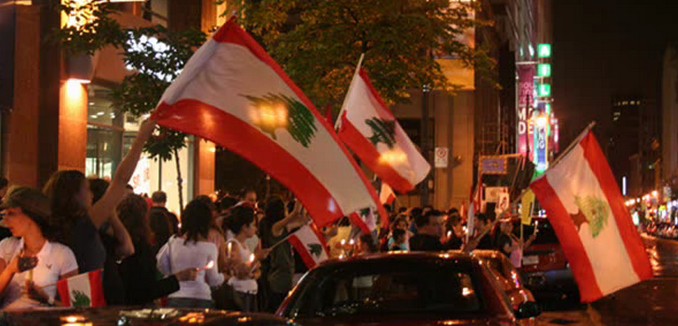The United States has cut funding to a program “intended [to] foster an independent moderate Shiite voice” in Lebanon, leading critics to fault the move as an effort to appease Iran, The Wall Street Journal reported (Google link) Tuesday.
The Hayya Bina program in question was funded through the International Republican Institute, which promotes democracy overseas. It sought to support diverse Shiite voices through workshops, publications and public opinion polling. But in April, the institute notified Hayya Bina that the Obama administration was terminating its support for that program.
The State Department “requests that all activities intended [to] foster an independent moderate Shiite voice be ceased immediately and indefinitely,” said the April 10 letter to Mr. Slim, according to a copy seen by The Wall Street Journal. “Hayya Bina…must eliminate funding for any of the above referenced activities.” …
“As Hayya Bina continues to receive State Department support for other projects, we believe the action taken regarding these objectives reflects reservations over the nature of the programming, rather than our organizational integrity,” said Inga Schei, the group’s program director.
Other programs run by Hayya Bina continue to receive State Department funding. However, the Journal noted that Lebanese institutions considered close to the the Iranian proxy group Hezbollah, including the armed forces and intelligence agency, receive American cooperation to support their fight against the Nusra Front and the Islamic State of Iraq and Syria (ISIS).
Hezbollah leader Hassan Nasrallah has referred to Lebanese Shiites who don’t support him as “idiots” and “traitors.” Lokman Slim, director of Hayya Bina, told the Journal that he is one of those who has been “singled out” by Nasrallah.
“Coming on the heels of an expected deal with Iran, it is bound to generate much speculation about possible ulterior motives,” Firas Maksad, director of Global Policy Advisors, told the Journal.
Bloomberg News reported Tuesday that a United Nations panel found that the United States and other Western countries have not been enforcing sanctions imposed on Iran. Mark Dubowitz, executive director of the Foundation for Defense of Democracies, characterized the non-enforcement of sanctions as a “political decision” taken to ensure that Iran’s behavior “doesn’t in any way jeopardize the [nuclear] talks.”
[Photo: aliseifeddine / YouTube ]




